China and Covid19
Chinese Netizens Respond to ‘Uplifting’ Covid News: “We’re Not That Dumb”
A viral WeChat blog criticizes Chinese journalists for ‘dumbing down’ and exaggerating Shanghai Covid news.
Published
2 years agoon
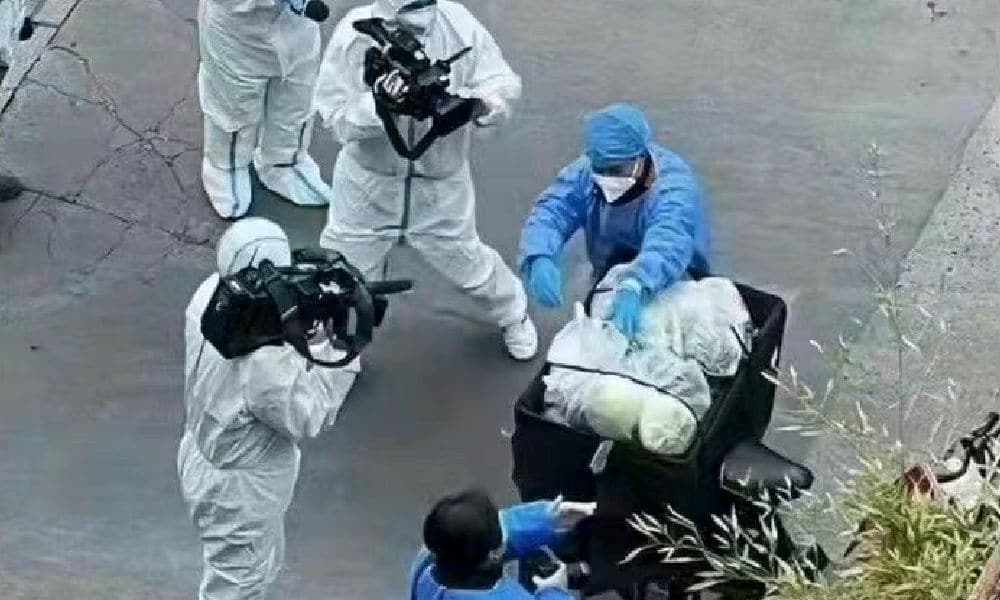
Weibo commenters say they do not know “whether to laugh or to cry” about some state media news items that are desperately trying to turn news about Shanghai’s Covid situation into something ‘uplifting.’
This week, a WeChat article criticizing ‘uplifting’ news about Shanghai’s Covid situation has been making its rounds on Chinese social media.
“Sometimes, I really doubt the intelligence of some institutionalized journalists, I really don’t know whether to laugh or cry about it,” the author (大松子哟) of the Wechat article titled “Please Guys, Give Us Less Retarded News” (“求求你们了,少整点弱智新闻吧“) writes.
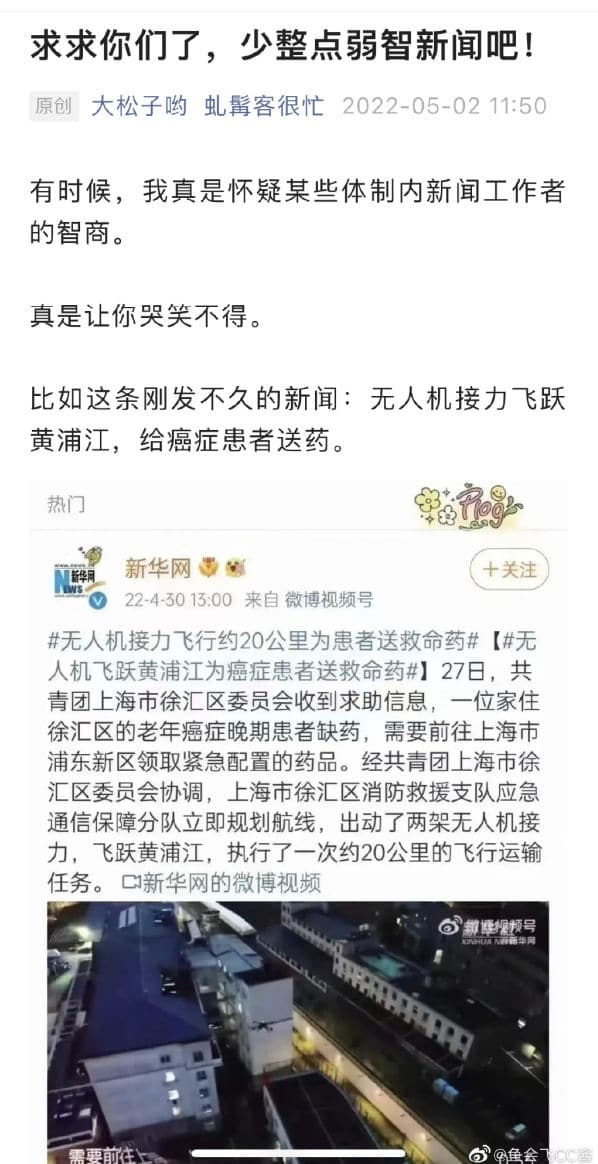
One of the recent news stories that is mentioned as an example of Shanghai blowing its own horn while also dumbing down news readers, is that of state media outlet Xinhua News about a drone flying over the Huangpu River to deliver priority life-saving medication to a cancer patient.
According to the state media report, the Shanghai local Committee of the Communist Youth League in Xuhui District received a help inquiry on April 27th from an elderly patient with advanced liver cancer who needed their emergency medicine from Shanghai’s Pudong District.
With the help of the fire and emergency department, the Committee immediately arranged for two drones to go on a mission over the Huangpu River to pick up and deliver the medicine, a journey of about 20 kilometers. The mission was reportedly accomplished in thirty minutes and the entire ordeal was filmed by the second drone for a Xinhua video.
So some officials went through an awful lot of trouble to get medications to a cancer patient in Shanghai, with two drones crossing the Huangpu River and flying 20 km to deliver them. But netizens aren't buying it: "They could've just delivered them by car. There is no traffic." pic.twitter.com/OXKTIZnTTu
— Manya Koetse (@manyapan) May 4, 2022
“Such positivity,” one popular blogger wrote: “But what about just putting these medications in a car for transportation – they won’t go bad, and there are no traffic jams in Shanghai now. Transportation by car is a bit safer than flying them over the Huangpu river don’t you think?”
Another Weibo user wrote: “Shanghai bridges aren’t bombed, are they? The tunnels aren’t blocked, are they? Couldn’t the firemen just drive a car and deliver the medicine?” The idea that the two drones needed to fly out because the bridges and tunnels were bombed or blocked then became somewhat of a running joke on Weibo.
“This is all just to fit the propaganda messages, did you think people are stupid or something?” others wrote, with many commenters repeating the sentence: “I don’t know whether to laugh or cry about it.”
“I’m laughing so hard over this, all this trouble with a drone delivering medication and then another drone following it to film it, they’re making things so difficult.”
Following online criticism, a hashtag page related to the news was temporarily disabled and later only eight comments praising the video were displayed below the Xinhua thread, which actually received nearly 5000 replies.
Grateful Sick Man in Wheelchair
Another example raised is a news story about an elderly sick man with an amputated leg living on the fourth floor of an apartment building (without elevators) who had to go downstairs for a mandatory Covid test. Unable to leave his apartment by himself, the old man was helped by five anti-epidemic workers who carried him all the way down in his wheelchair.
According to the original news report, the old man was moved and thanked the workers for helping him get downstairs.

“Wouldn’t it have been easier to bring the test upstairs?” many people wondered. “Wasn’t the news editor a bit entertained about this news himself?”
Others also wondered how and if the man in the wheelchair ever got back to his fourth-floor apartment again.
“So you think it’s not a good idea for one person to go to the house to do the nucleic acid test, but you do think it looks good for five people to carry the old man down with a wheelchair and take pictures of it?” the WeChat article author wrote: “And he was moved and actually thanked you? Are you sure he didn’t call you idiots?”
The blogger also wrote: “I understand the goal of these kinds of articles is to express positivity and to convey a feeling of urgency that ‘every second counts,’ but could you please also take our IQ into considering when setting the atmosphere?”
Adding: “I once heard a story as a kid about an Arab who had won a camel at a competition. When he got home, he wanted to slaughter the camel but discovered his knife was on the third floor, so he asked three of his neighbors to help him get the camel up to the third floor…” I always thought this story was just fabricated, but now I’ve come to realize I was just too naive.”
A Life or Death Mission
Another news story mentioned was originally published by Jiefang Daily (解放日报), the official daily newspaper of the Shanghai Committee of the Chinese Communist Party. It is a personal narrative of a Shanghai official who is going back to work ‘in the field’ for the first time in a decade.
This is how the story begins:
“On the evening of April 12, close to 10pm, I received a call from my unit that I would be part of a team of ten people as the first batch of cadres to get into the village. Actually, I felt afraid, I didn’t know what the situation would be like in the place where we were heading. What challenges would we face? Also, I have two sons in junior high school, I always help them in their schoolwork, I worried their studies would be delayed.”
“I told my sons to go up to the attic to get the biggest suitcase. They were stupefied, asking me: ‘Mum, how long will you be gone for? Why do you need such a big suitcase?’ I told them: ‘You can never be over-prepared. I don’t exactly know how long.’ I could see the panic in their eyes.”
“The next day, when my sons carried my luggage to the car, I turned around and hugged them both. I had never been so sad to part with them, and tears started welling up in my eyes. I held myself back and told myself: ‘You can’t cry, you need to be a good role model for your sons, when facing a catastrophe someone must stand up and bravely step forward. Besides, I’m not the one who is suffering the most – if others can do it, so can I.”

The WeChat blogger responds to the news article, writing: “I first thought the protagonist was leaving their family to go abroad for some secret all or nothing mission, moving heaven and heart, between life and death,.. but then I read on and, oh, my dear, it turns out to be an official who’s going to work at a neighborhood committee!”
The author criticizes the article for presenting the work of a local cadre at a neighborhood committee – doing simple work such as scanning QR codes and collecting PCR tests – as some life or death mission.
“Where does this kind of ‘self-moving’ [‘自我感动’, like stroking one’s own ego] come from? Isn’t it embarrassing?”
Meanwhile, on Weibo, the banter continues: “I remember someone saying that the person in charge of the Shanghai propaganda line came back from North Korea.”
This is not the first time that this kind of ‘positive’ reporting in times of Covid is deemed out of place and exaggerated.
In February 2020, Chinese media reports praised female nurses as true heroes for having their heads shaved before going to Wuhan to help in the fight against Covid-19. The reports and videos showed some women crying while having their hair completely shaved, and the media segment caused anger among Weibo and Wechat users who thought it was all about propaganda.

Gansu Daily report on women having their head shaved in preparation of their Wuhan mission, February 2020.
Many wondered why the women needed to shave off all of their hair while male nurses could keep their hair. Some experts chiming in claimed that having a bald head would not be helpful in the fight against the virus, as (short) hair also has a protective function, reduces irritation from wearing hats and masks, and prevents sweat from dropping into the eyes.
More recently, a CCTV video report on the situation in Shanghai went viral on WeChat after people thought the part showing a supposed Shanghai supermarket was “too fake,” with many suggesting it was filmed inside a film studio instead of inside an actual Shanghai supermarket in times of lockdown and grocery problems.
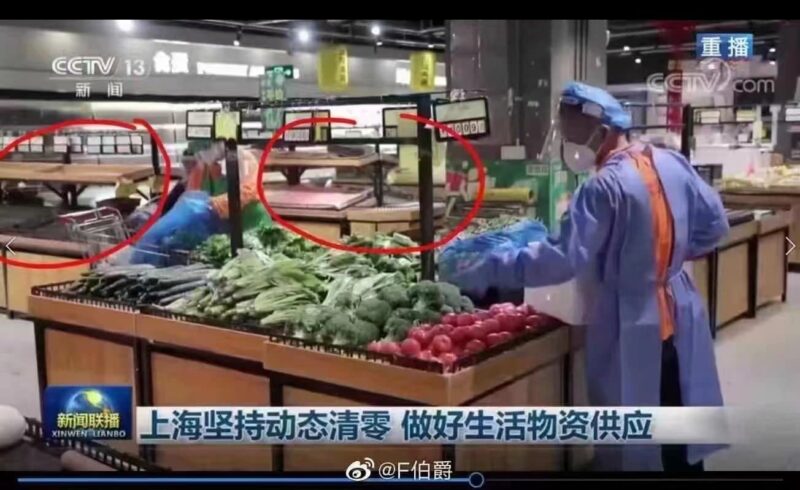
Afterward, a video made by social media users edited a Joker Xue song into the state media video, in which he sings about a relationship in which one person is faking it and the other just plays along and pretends not to notice for the sake of their relationship.
Official media then reported that the supermarket scenes were “authentic.” The very fact that state media outlets apparently felt the need to convince netizens that the state news program was legitimate, instead of being staged as some netizens suspected, says a lot about the current relationship between state media and Chinese netizens amid tensions surrounding the situation in Shanghai.
“These kind of news reports are an insult to my brain,” one commenter wrote.
For more articles on the Covid-19 topics on Chinese social media, check here.
By Manya Koetse, with contributions by Miranda Barnes
Get the story behind the hashtag. Subscribe to What’s on Weibo here to receive our weekly newsletter and get access to our latest articles:
Spotted a mistake or want to add something? Please let us know in comments below or email us. First-time commenters, please be patient – we will have to manually approve your comment before it appears.
©2022 Whatsonweibo. All rights reserved. Do not reproduce our content without permission – you can contact us at info@whatsonweibo.com.
Manya Koetse is the founder and editor-in-chief of whatsonweibo.com. She is a writer, public speaker, and researcher (Sinologist, MPhil) on social trends, digital developments, and new media in an ever-changing China, with a focus on Chinese society, pop culture, and gender issues. She shares her love for hotpot on hotpotambassador.com. Contact at manya@whatsonweibo.com, or follow on Twitter.

China and Covid19
Sick Kids, Worried Parents, Overcrowded Hospitals: China’s Peak Flu Season on the Way
“Besides Mycoplasma infections, cases include influenza, Covid-19, Norovirus, and Adenovirus. Heading straight to the hospital could mean entering a cesspool of viruses.”
Published
8 months agoon
November 22, 2023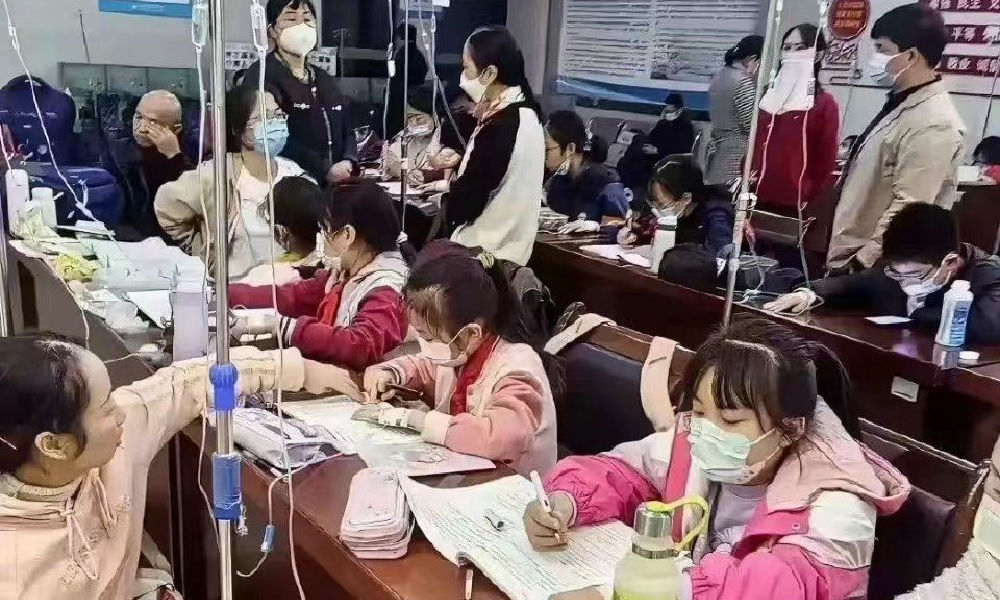
In the early morning of November 21, parents are already queuing up at Xi’an Children’s Hospital with their sons and daughters. It’s not even the line for a doctor’s appointment, but rather for the removal of IV needles.
The scene was captured in a recent video, only one among many videos and images that have been making their rounds on Chinese social media these days (#凌晨的儿童医院拔针也要排队#).
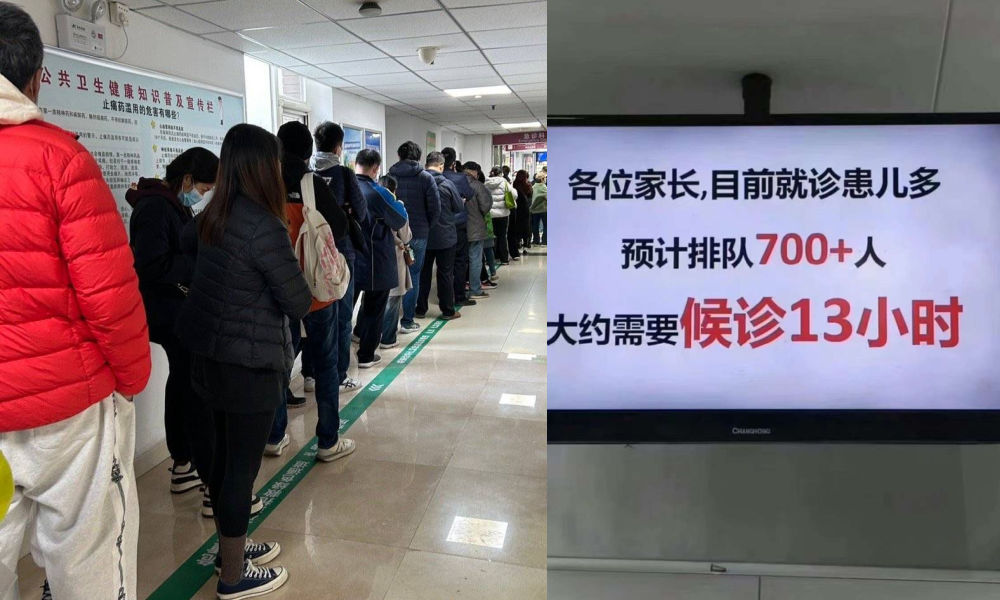
One photo shows a bulletin board at a local hospital warning parents that over 700 patients are waiting in line, estimating a waiting time of more than 13 hours to see a doctor.
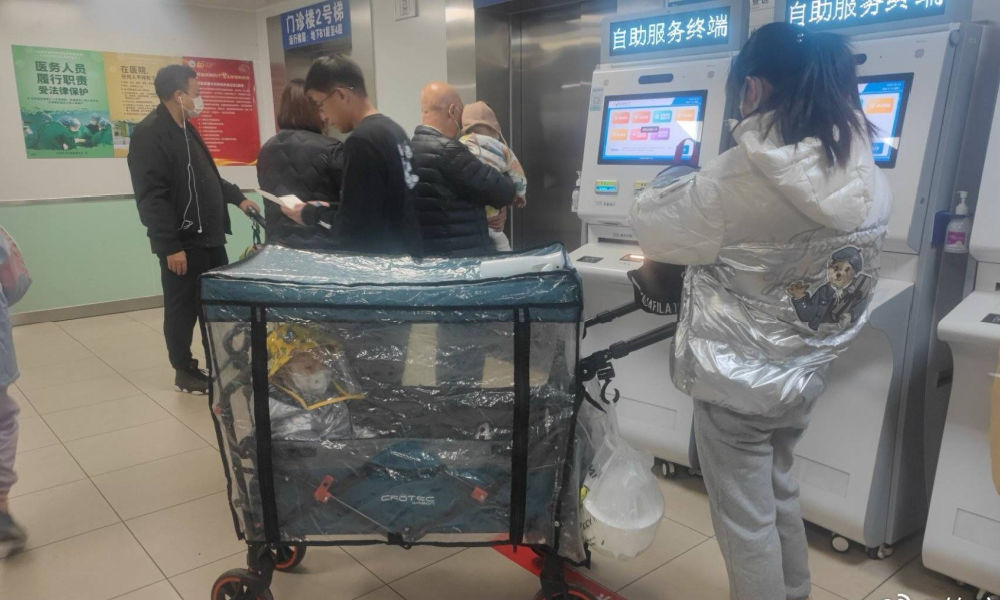
Another image shows children doing their homework while hooked up on an IV.

Recent discussions on Chinese social media platforms have highlighted a notable surge in flu cases. The ongoing flu season is particularly impacting children, with multiple viruses concurrently circulating and contributing to a high incidence of respiratory infections.
Among the prevalent respiratory infections affecting children are Mycoplasma pneumoniae infections, influenza, and Adenovirus infection.
The spike in flu cases has resulted in overcrowded children’s hospitals in Beijing and other Chinese cities. Parents sometimes have to wait in line for hours to get an appointment or pick up medication.
According to one reporter at Haibao News (海报新闻), there were so many patients at the Children’s Hospital of Capital Institute of Pediatrics (首都儿科研究所) on November 21st that the outpatient desk stopped accepting new patients by the afternoon. Meanwhile, 628 people were waiting in line to see a doctor at the emergency department.
Reflecting on the past few years, the current flu season marks China’s first ‘normal’ flu peak season since the outbreak of Covid-19 in late 2019 / early 2020 and the end of its stringent zero-Covid policies in December 2022. Compared to many other countries, wearing masks was also commonplace for much longer following the relaxation of Covid policies.
Hu Xijin, the well-known political commentator, noted on Weibo that this year’s flu season seems to be far worse than that of the years before. He also shared that his own granddaughter was suffering from a 40 degrees fever.
“We’re all running a fever in our home. But I didn’t dare to go to the hospital today, although I want my child to go to the hospital tomorrow. I heard waiting times are up to five hours now,” one Weibo user wrote.
“Half of the kids in my child’s class are sick now. The hospital is overflowing with people,” another person commented.
One mother described how her 7-year-old child had been running a fever for eight days already. Seeking medical attention on the first day, the initial diagnosis was a cold. As the fever persisted, daily visits to the hospital ensued, involving multiple hours for IV fluid administration.
While this account stems from a single Weibo post within a fever-advice community, it highlights a broader trend: many parents swiftly resort to hospital visits at the first signs of flu or fever. Several factors contribute to this, including a lack of General Practitioners in China, making hospitals the primary choice for medical consultations also in non-urgent cases.
There is also a strong belief in the efficacy of IV infusion therapy, whether fluid-based or containing medication, as the quickest path to recovery. Multiple factors contribute to the widespread and sometimes irrational use of IV infusions in China. Some clinics are profit-driven and see IV infusions as a way to make more money. Widespread expectations among Chinese patients that IV infusions will make them feel better also play a role, along with some physicians’ lacking knowledge of IV therapy or their uncertainty to distinguish bacterial from viral infections (read more here)
To prevent an overwhelming influx of patients to hospitals, Chinese state media, citing specialists, advise parents to seek medical attention at the hospital only for sick infants under three months old displaying clear signs of fever (with or without cough). For older children, it is recommended to consult a doctor if a high fever persists for 3 to 5 days or if there is a deterioration in respiratory symptoms. Children dealing with fever and (mild) respiratory symptoms can otherwise recover at home.
One Weibo blogger (@奶霸知道) warned parents that taking their child straight to the hospital on the first day of them getting sick could actually be a bad idea. They write:
“(..) pediatric departments are already packed with patients, and it’s not just Mycoplasma infections anymore. Cases include influenza, Covid-19, Norovirus, and Adenovirus. And then, of course, those with bad luck are cross-infected with multiple viruses at the same time, leading to endless cycles. Therefore, if your child experiences mild coughing or a slight fever, consider observing at home first. Heading straight to the hospital could mean entering a cesspool of viruses.”
The hashtag for “fever” saw over 350 million clicks on Weibo within one day on November 22.
Meanwhile, there are also other ongoing discussions on Weibo surrounding the current flu season. One topic revolves around whether children should continue doing their homework while receiving IV fluids in the hospital. Some hospitals have designated special desks and study areas for children.
Although some commenters commend the hospitals for being so considerate, others also remind the parents not to pressure their kids too much and to let them rest when they are not feeling well.
Opinions vary: although some on Chinese social media say it's very thoughtful for hospitals to set up areas where kids can study and read, others blame parents for pressuring their kids to do homework at the hospital instead of resting when not feeling well. pic.twitter.com/gnQD9tFW2c
— Manya Koetse (@manyapan) November 22, 2023
By Manya Koetse, with contributions from Miranda Barnes
Get the story behind the hashtag. Subscribe to What’s on Weibo here to receive our newsletter and get access to our latest articles:
Spotted a mistake or want to add something? Please let us know in comments below or email us. First-time commenters, please be patient – we will have to manually approve your comment before it appears.
©2023 Whatsonweibo. All rights reserved. Do not reproduce our content without permission – you can contact us at info@whatsonweibo.com.
China and Covid19
Repurposing China’s Abandoned Nucleic Acid Booths: 10 Innovative Transformations
Abandoned nucleic acid booths are getting a second life through these new initiatives.
Published
1 year agoon
May 19, 2023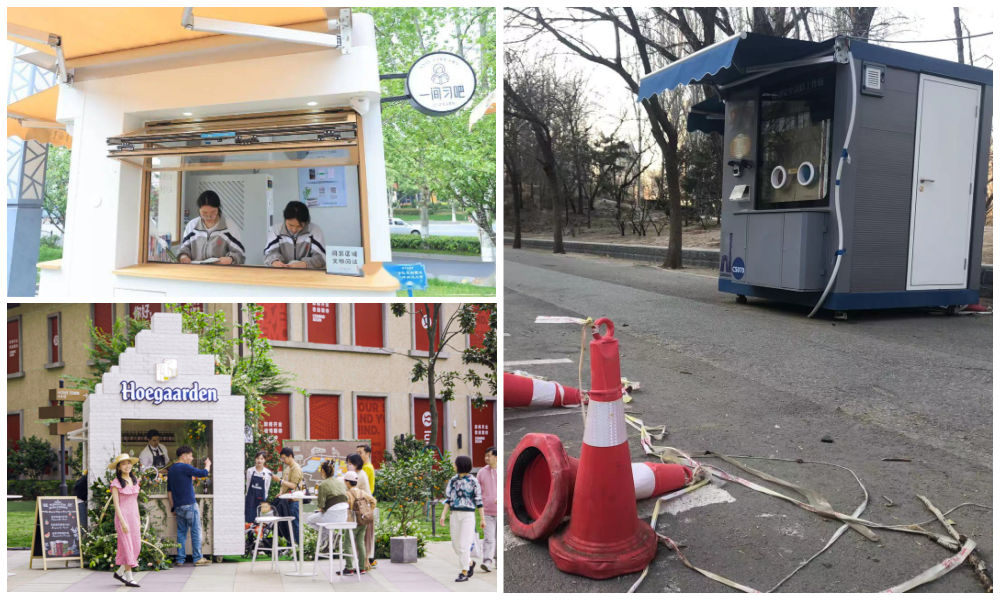
During the pandemic, nucleic acid testing booths in Chinese cities were primarily focused on maintaining physical distance. Now, empty booths are being repurposed to bring people together, serving as new spaces to serve the community and promote social engagement.
Just months ago, nucleic acid testing booths were the most lively spots of some Chinese cities. During the 2022 Shanghai summer, for example, there were massive queues in front of the city’s nucleic acid booths, as people needed a negative PCR test no older than 72 hours for accessing public transport, going to work, or visiting markets and malls.
The word ‘hésuān tíng‘ (核酸亭), nucleic acid booth (also:核酸采样小屋), became a part of China’s pandemic lexicon, just like hésuān dìtú (核酸地图), the nucleic acid test map lauched in May 2022 that would show where you can get a nucleic test.
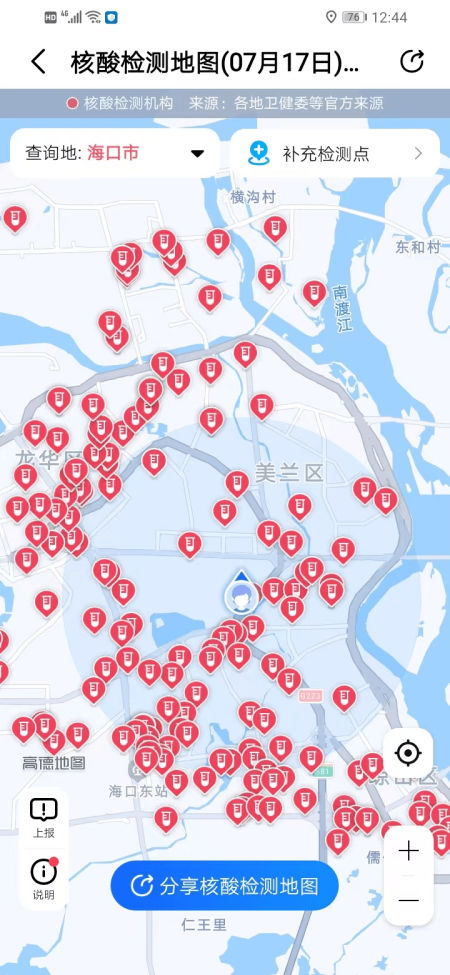
Example of nucleic acid test map.
During Halloween parties in Shanghai in 2022, some people even came dressed up as nucleic test booths – although local authorities could not appreciate the creative costume.
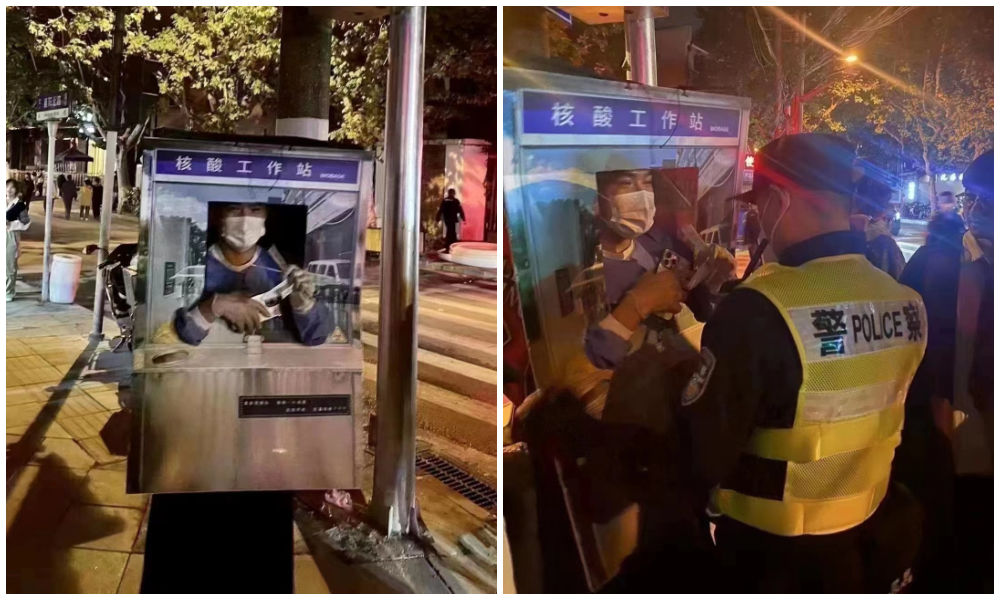
Halloween 2022: dressed up as nucliec acid booths. Via @manyapan twitter.
In December 2022, along with the announced changed rules in China’s ‘zero Covid’ approach, nucleic acid booths were suddenly left dismantled and empty.
With many cities spending millions to set up these booths in central locations, the question soon arose: what should they do with the abandoned booths?
This question also relates to who actually owns them, since the ownership is mixed. Some booths were purchased by authorities, others were bought by companies, and there are also local communities owning their own testing booths. Depending on the contracts and legal implications, not all booths are able to get a new function or be removed yet (Worker’s Daily).
In Tianjin, a total of 266 nucleic acid booths located in Jinghai District were listed for public acquisition earlier this month, and they were acquired for 4.78 million yuan (US$683.300) by a local food and beverage company which will transform the booths into convenience service points, selling snacks or providing other services.
Tianjin is not the only city where old nucleic acid testing booths are being repurposed. While some booths have been discarded, some companies and/or local governments – in cooperation with local communities – have demonstrated creativity by transforming the booths into new landmarks. Since the start of 2023, different cities and districts across China have already begun to repurpose testing booths. Here, we will explore ten different way in which China’s abandoned nucleic test booths get a second chance at a meaningful existence.
1: Pharmacy/Medical Booths
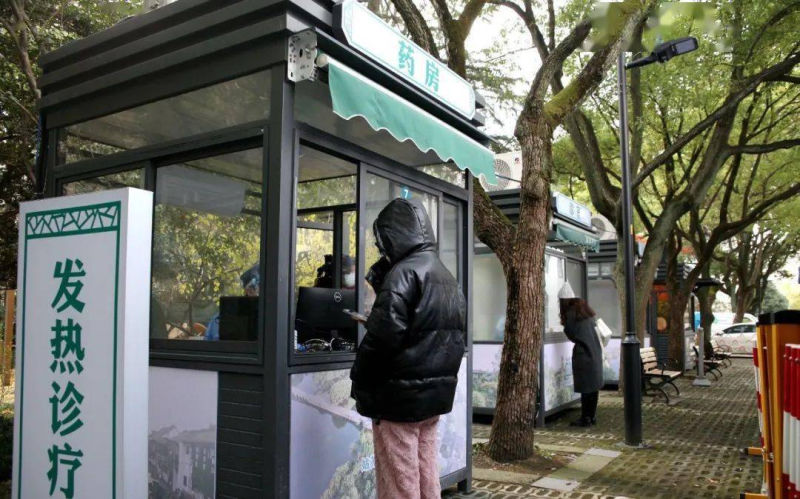
Via ‘copyquan’ republished on Sohu.
Blogger ‘copyquan’ recently explored various ways in which abandoned PCR testing points are being repurposed.
One way in which they are used is as small pharmacies or as medical service points for local residents (居民医疗点). Alleviating the strain on hospitals and pharmacies, this was one of the earliest ways in which the booths were repurposed back in December of 2022 and January of 2023.
Chongqing, Tianjin, and Suzhou were among earlier cities where some testing booths were transformed into convenient medical facilities.
2: Market Stalls
In Suzhou, Jiangsu province, the local government transformed vacant nucleic acid booths into market stalls for the Spring Festival in January 2022, offering them free of charge to businesses to sell local products, snacks, and traditional New Year goods.
The idea was not just meant as a way for small businesses to conveniently sell to local residents, it was also meant as a way to attract more shoppers and promote other businesses in the neighborhood.
3: Community Service Center

Small grid community center in Shizhuang Village, image via Sohu.
Some residential areas have transformed their local nucleic acid testing booths into community service centers, offering all kinds of convenient services to neighborhood residents.
These little station are called wǎnggé yìzhàn (网格驿站) or “grid service stations,” and they can serve as small community centers where residents can get various kinds of care and support.
4: “Refuel” Stations
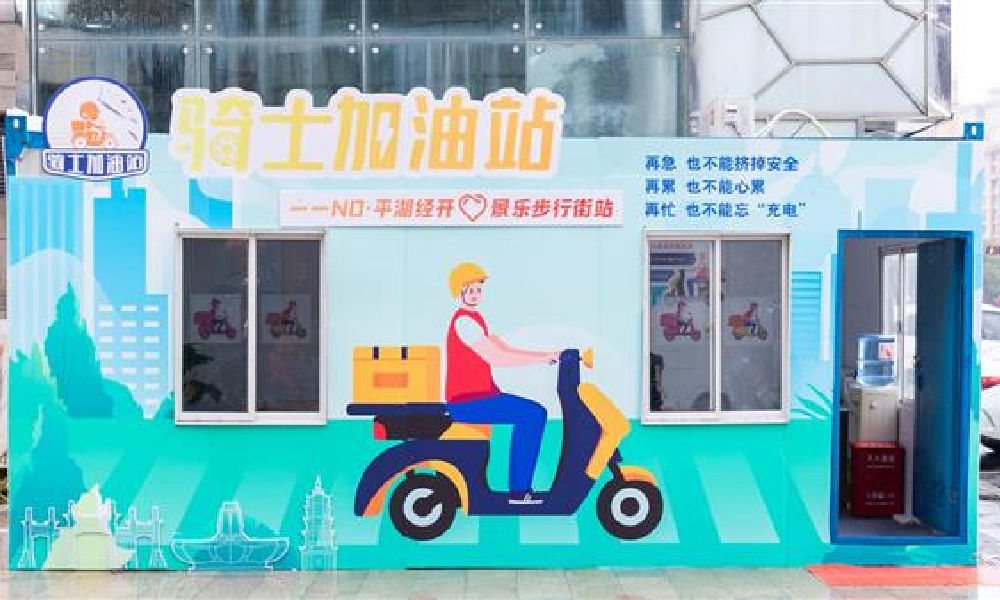
In February of this year, 100 idle nucleic acid sampling booths were transformed into so-called “Rider Refuel Stations” (骑士加油站) in Zhejiang’s Pinghu. Although it initially sounds like a place where delivery riders can fill up their fuel tanks, it is actually meant as a place where they themselves can recharge.
Delivery riders and other outdoor workers can come to the ‘refuel’ station to drink some water or tea, warm their hands, warm up some food and take a quick nap.
5: Free Libraries
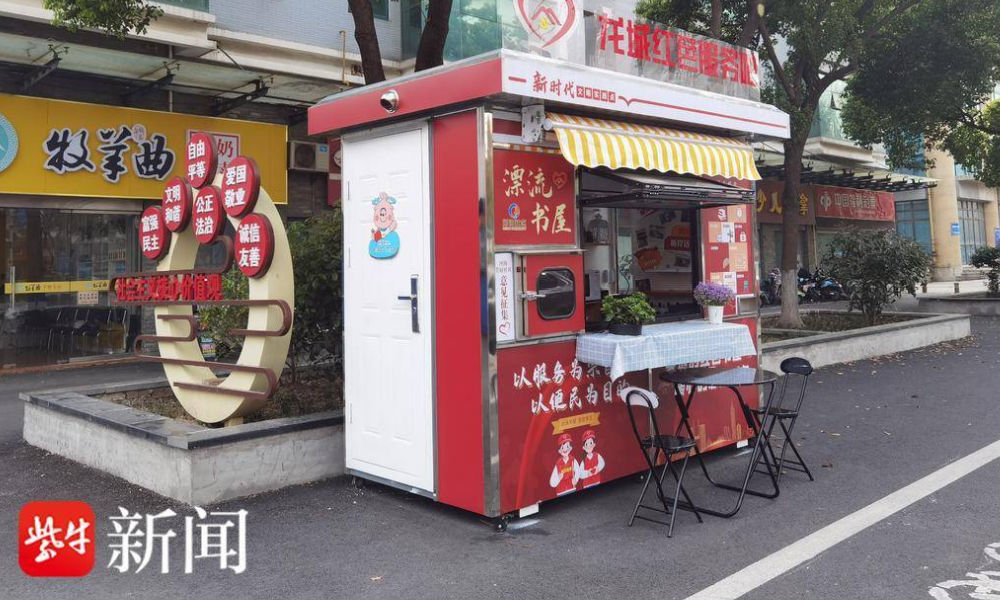
image via sohu.
In various Chinese cities, abandoned nucleic acid booths have been transformed into little free libraries where people can grab some books to read, donate or return other books, and sit down for some reading.
Changzhou is one of the places where you’ll find such “drifting bookstores” (漂流书屋) (see video), but similar initiatives have also been launched in other places, including Suzhou.
6: Study Space
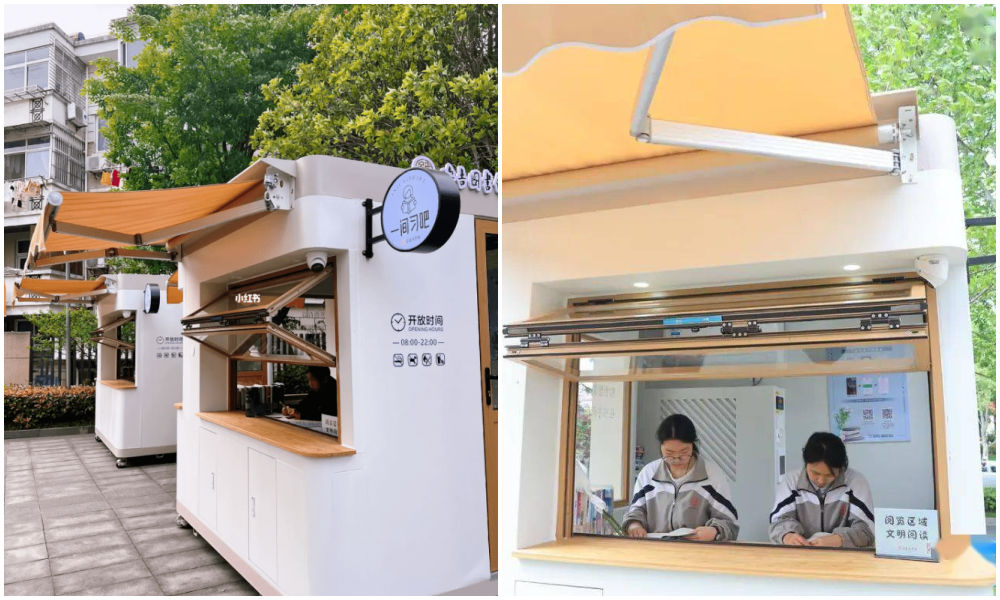
Photos via Copyquan’s article on Sohu.
Another innovative way in which old testing points are being repurposed is by turning them into places where students can sit together to study. The so-called “Let’s Study Space” (一间习吧), fully airconditioned, are opened from 8 in the morning until 22:00 at night.
Students – or any citizens who would like a nice place to study – can make online reservations with their ID cards and scan a QR code to enter the study rooms.
There are currently ten study booths in Anji, and the popular project is an initiative by the Anji County Library in Zhejiang (see video).
7: Beer Kiosk
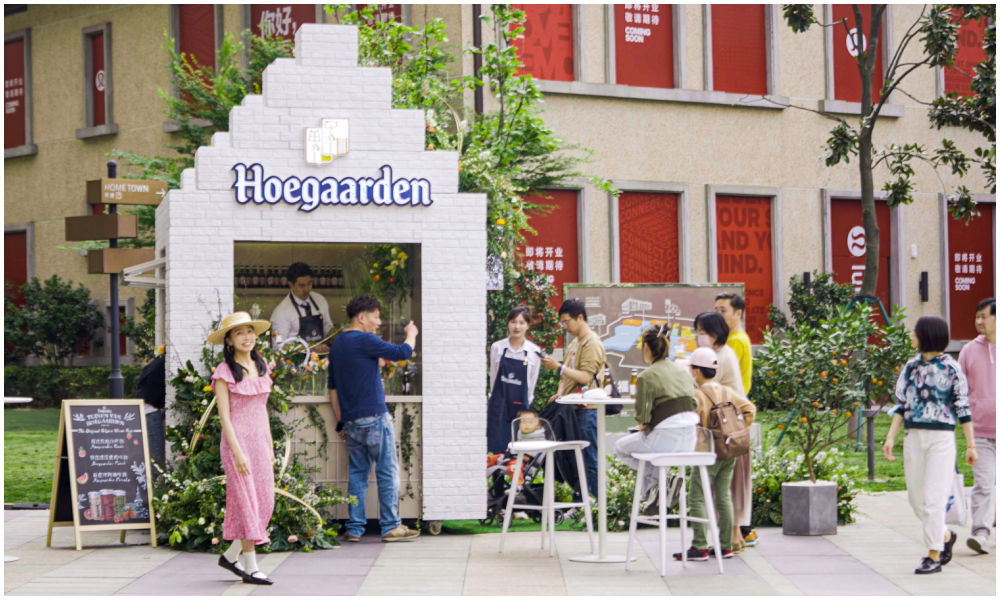
Hoegaarden beer shop, image via Creative Adquan.
Changing an old nucleic acid testing booth into a beer bar is a marketing initiative by the Shanghai McCann ad agency for the Belgium beer brand Hoegaarden.
The idea behind the bar is to celebrate a new spring after the pandemic. The ad agency has revamped a total of six formr nucleic acid booths into small Hoegaarden ‘beer gardens.’
8: Police Box

In Taizhou City, Jiangsu Province, authorities have repurposed old testing booths and transformed them into ‘police boxes’ (警务岗亭) to enhance security and improve the visibility of city police among the public.
Currently, a total of eight vacant nucleic acid booths have been renovated into modern police stations, serving as key points for police presence and interaction with the community.
9: Lottery Ticket Booths
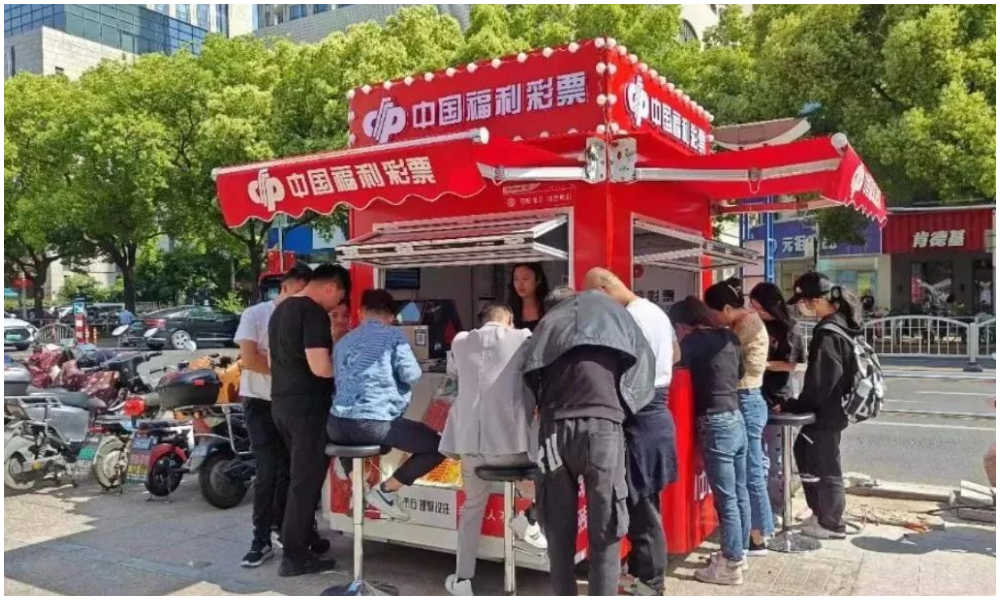
Image via The Paper
Some nucleic acid booths have now been turned into small shops selling lottery tickets for the China Welfare Lottery. One such place turning the kiosks into lottery shops is Songjiang in Shanghai.
Using the booths like this is a win-win situation: they are placed in central locations so it is more convenient for locals to get their lottery tickets, and on the other hand, the sales also help the community, as the profits are used for welfare projects, including care for the elderly.
10: Mini Fire Stations
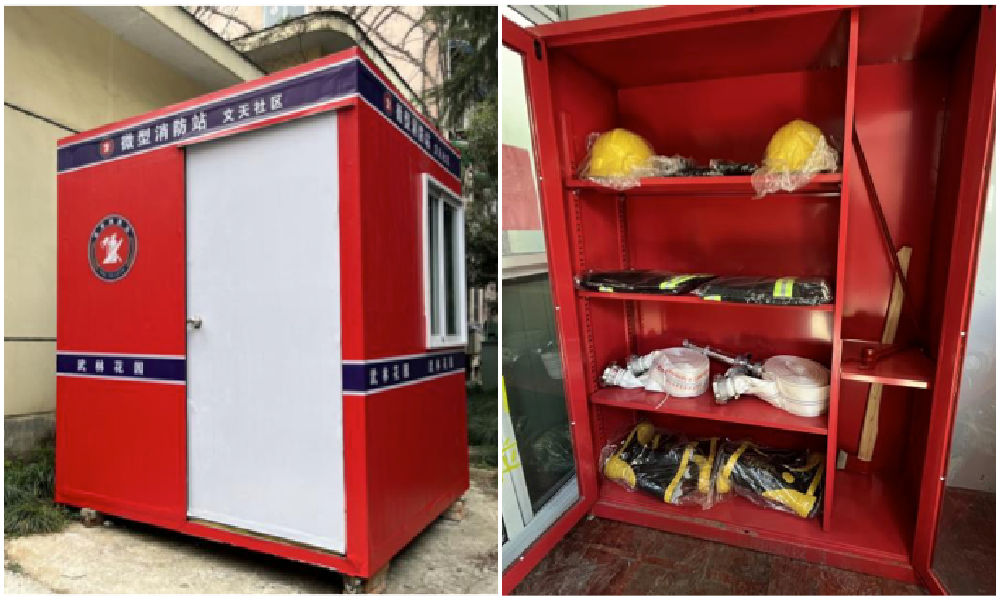
Micro fire stations, images via ZjNews.
Some communities decided that it would be useful to repurpose the testing points and turn them into mini fire kiosks, just allowing enough space for the necessary equipment to quickly respond to fire emergencies.
Want to read more about the end of ‘zero Covid’ in China? Check our other articles here.
By Manya Koetse,
Get the story behind the hashtag. Subscribe to What’s on Weibo here to receive our newsletter and get access to our latest articles:
Spotted a mistake or want to add something? Please let us know in comments below or email us. First-time commenters, please be patient – we will have to manually approve your comment before it appears.
©2023 Whatsonweibo. All rights reserved. Do not reproduce our content without permission – you can contact us at info@whatsonweibo.com.
Subscribe

Weibo Watch: The Future is Here

“Bye Bye Biden”: Biden’s Many Nicknames in Chinese

Enjoying the ‘Sea’ in Beijing’s Ditan Park

A Triumph for “Comrade Trump”: Chinese Social Media Reactions to Trump Rally Shooting

Weibo Watch: Get Up, Stand Up

The Tragic Story of “Fat Cat”: How a Chinese Gamer’s Suicide Went Viral

“Old Bull Eating Young Grass”: 86-Year-Old Chinese Painter Fan Zeng Marries 36-Year-Old Xu Meng

A Brew of Controversy: Lu Xun and LELECHA’s ‘Smoky’ Oolong Tea

Singing Competition or Patriotic Fight? Hunan TV’s ‘Singer 2024’ Stirs Nationalistic Sentiments

Zara Dress Goes Viral in China for Resemblance to Haidilao Apron

Weibo Watch: The Battle for the Bottom Bed

About the “AI Chatbot Based on Xi Jinping” Story

China’s Intensified Social Media Propaganda: “Taiwan Must Return to Motherland”

Weibo Watch: Telling China’s Stories Wrong

Saying Goodbye to “Uncle Wang”: Wang Wenbin Becomes Chinese Ambassador to Cambodia
Get in touch
Would you like to become a contributor, or do you have any tips or suggestions? Get in touch here!
Popular Reads
-

 China Insight3 months ago
China Insight3 months agoThe Tragic Story of “Fat Cat”: How a Chinese Gamer’s Suicide Went Viral
-

 China Music4 months ago
China Music4 months agoThe Chinese Viral TikTok Song Explained (No, It’s Not About Samsung)
-

 China Digital10 months ago
China Digital10 months agoToo Sexy for Weibo? Online Discussions on the Concept of ‘Cābiān’
-

 China Arts & Entertainment12 months ago
China Arts & Entertainment12 months agoBehind 8 Billion Streams: Who is Dao Lang Cursing in the Chinese Hit Song ‘Luocha Kingdom’?






charles baer
May 6, 2022 at 2:03 am
the media world wide is terrible , but , the chinese deserve better .
lopez mason
May 7, 2022 at 4:09 am
This problem has existed for decades. Western countries will take stricter measures against wildlife abuse we become what we behold
Thomas Frank
October 3, 2022 at 3:36 am
There are many fake news about covid 19 appeared in Internet. quordle